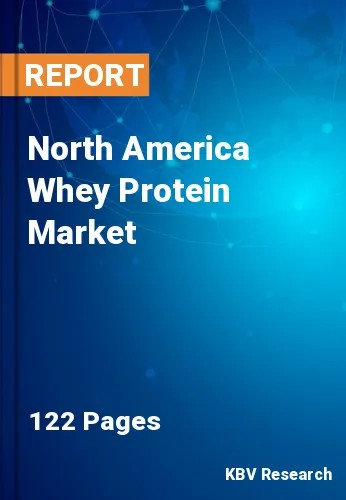The North America Whey Protein Market would witness market growth of 10.0% CAGR during the forecast period (2024-2031). In the year 2020, the North America market's volume surged to 37,655.6 tonnes, showcasing a growth of 13.5% (2020-2023).
Supermarkets and hypermarkets are significant distribution channels in the whey protein market, offering a wide range of products to a large customer base. These retail outlets provide convenience and accessibility, attracting consumers who prefer to shop in-person and make quick, bulk purchases. Supermarkets typically offer whey protein products in various forms, including protein powders, ready-to-drink shakes, and protein bars, catering to both health-conscious consumers and athletes. Thus, 5,148.5 tonnes of whey protein is expected to be sold by supermarkets and hypermarkets in Canada by the year 2031.

The US market dominated the North America Whey Protein Market by Country in 2023, and would continue to be a dominant market till 2031; thereby, achieving a market value of $3,463.8 million by 2031. The Canada market is experiencing a CAGR of 11.2% during (2024 - 2031). Additionally, The Mexico market would exhibit a CAGR of 11.7% during (2024 - 2031).
Social media and fitness influencers have amplified whey protein’s popularity, with figures like Dwayne "The Rock" Johnson promoting its benefits to millions. Markets like India and China have seen localized whey protein innovations, with startups like HealthKart introducing region-specific products. Endurance athletes participating in events like the Boston Marathon rely on hydrolyzed whey for rapid absorption.
Moreover, technological advancements have enabled specialized products like whey protein isolates for lactose-intolerant individuals. This blend of consumer education, professional influence, and product innovation underscores whey protein’s pivotal role in the evolving sports nutrition landscape.
The whey protein market in North America has experienced substantial growth due to increasing consumer awareness of its health benefits, nutritional value, and versatility across various dietary and fitness applications. The region benefits from advanced processing technologies, robust supply chains, and a growing demand for high-protein products. North America distinguishes itself as a significant contributor to industry, emphasizing the promotion of locally sourced dairy products and the incorporation of whey protein into a variety of culinary and beverage applications. Additionally, government initiatives to support dairy farming and innovation in protein processing have further bolstered the market.
Free Valuable Insights: The Whey Protein Market is Predict to reach USD 12.55 Billion by 2031, at a CAGR of 10.5%
Based on Distribution Channel, the market is segmented into Supermarkets & Hypermarkets, Speciality Stores, Online Stores, and Other Distribution Channels. Based on Type, the market is segmented into Whey Protein Concentrates (WPC), Whey Protein Isolates (WPI), and Whey Protein Hydrolysates (WPH). Based on Application, the market is segmented into Sports Nutrition, Dietary Supplements, Infant Formula, Beverages, and Food & Feed Additives. Based on countries, the market is segmented into U.S., Mexico, Canada, and Rest of North America.
By Distribution Channel (Volume, Tonnes, USD Billion, 2020-2031)
By Type (Volume, Tonnes, USD Billion, 2020-2031)
By Application (Volume, Tonnes, USD Billion, 2020-2031)
By Country (Volume, Tonnes, USD Billion, 2020-2031)
Our team of dedicated experts can provide you with attractive expansion opportunities for your business.

